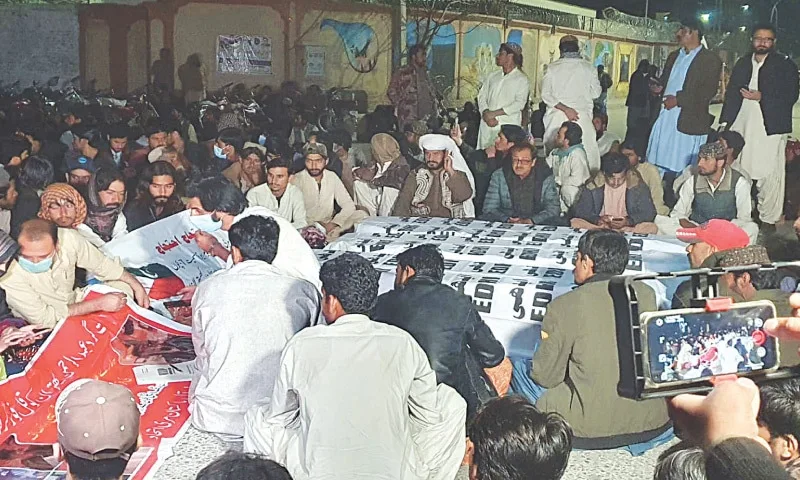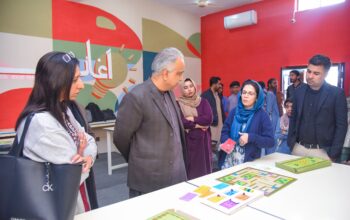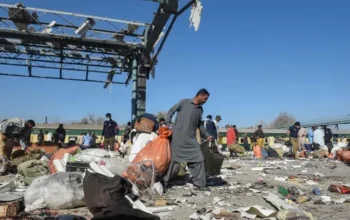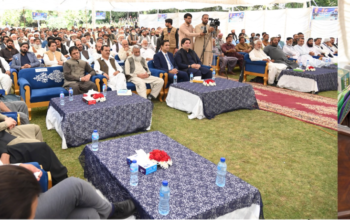Hundreds of people from the Marri and other Baloch tribes staged a protest in the provincial capital Quetta demanding arrest of provincial minister for communication and works Sardar Abdur Rehman Khetran .
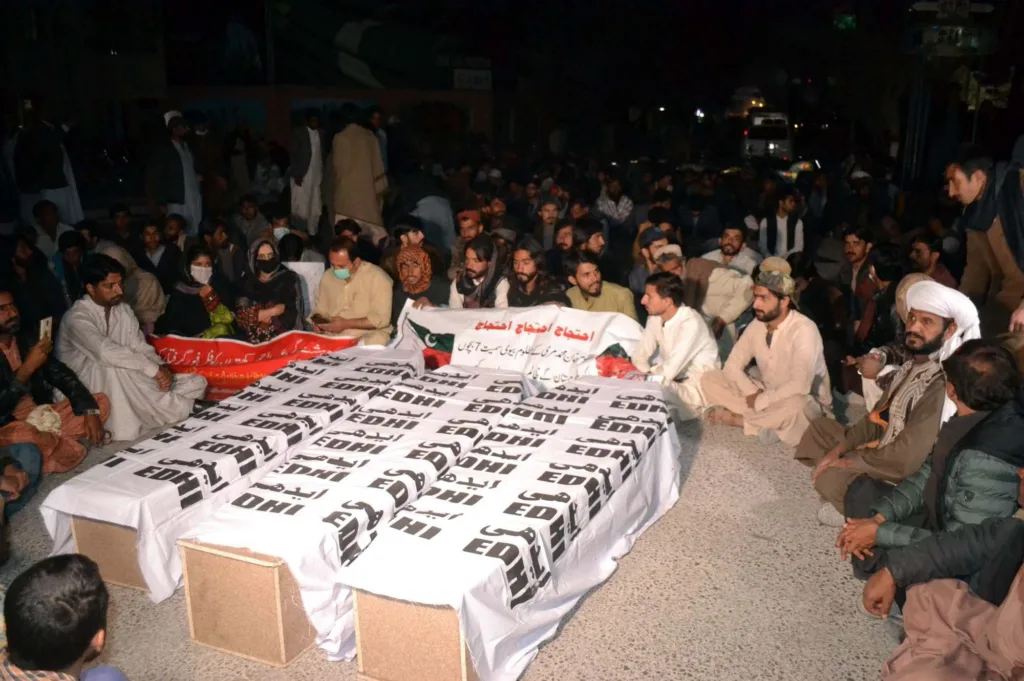
The victims, a woman and two men, were identified by the police as Giran Naz, age 40-45, wife of Khan Muhammad Marri and her two sons Mohammad Nawaz, aged 20-25, and Abdul Qadir, aged 15-20.
A press release issued by the police said the bodies, which were in sacks, were found yesterday (Feb 20) at around 8pm. The station house officer (SHO) of Barkhan Police Station was informed about the corpses in the well. “As soon as the SHO was informed about the incident, he immediately reached the site with his police party,” the statement said.
Khan Muhammad — the husband of the slain woman and the father of the brothers — alleged that in 2019, his wife and seven children were imprisoned in Khetran’s private jail due to not testifying in a case conflict between Khetran and his son, Sardar Inam Khetran.
The BAP MPA said his fourth son Inam had an interest in politics and wanted to be a sardar (chieftain) too. “Inam also took over the properties of the family forcefully,” he alleged.
Khetran son Inam posted videos and pictures of more children being held in Abdur Rehman khetran Private cellars. Inam Khetran said that the remaining children of Khan Muhammad Marri are still in the captivity of his father – the Balochistan minister Sardar Abdul Rehman Khetran. He claimed that Marri’s elder daughter is currently present in a house in Barkhan and the son was present in a house in Quetta.
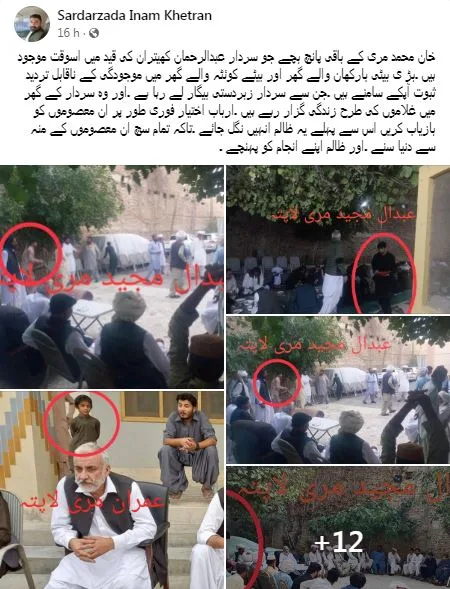
Khetran claimed that the video of the deceased woman was shot by Inam who then posted it on social media. However, he clarified that he wasn’t pinning the blame on anyone.
Kethran denies holding a private jail in Barkhan. Contrary to his denial of keeping private cells in his home town, a police and Anti terrorist force search party raided Abdur Rehman kethran’s private jail in 2014. Police recovered seven people from his jail.
JIT formed to probe the incident.
CM Balcohsitan Abdul Quddos Bazenjo formed a JIT to probe the killings.
CM is considered a close friend and sympathizer of the provincial minister accused. It raises serious doubts and concerns on the formation of the JIT.
Barkhan incident exposes the wild lawless feudal system of Balochistan.
The feudal system was a social and political system that developed in Europe during the middle Ages, and it is not a traditional system in Balochistan.However, Balochistan has a long history of tribalism, where the tribes are the basic unit of social organization, and tribal leaders hold significant influence and power within their communities.
In Balochistan, the tribal leaders, also known as Sardars, have traditionally held considerable power and influence over their tribes. They are often the primary decision-makers on matters related to land use, resource allocation, and conflict resolution. The Sardars are also responsible for collecting tributes and taxes from their tribes.
While the Balochistan government abolished the Sardari system in 1976, the Sardars still hold a significant degree of power and influence in their respective areas. The government has implemented several policies to reduce the power of the Sardars and empower the people, but the effects of these policies have been limited due to various reasons, including the lack of political will, poor implementation, and resistance from the Sardars themselves.
In recent years, there have been some efforts to address the power dynamics in Balochistan and promote a more equitable distribution of resources and political power. However, significant challenges remain in transforming the social and political landscape of the province.

